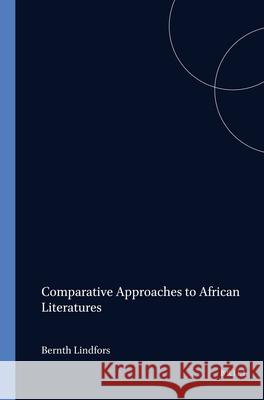Comparative Approaches to African Literatures » książka
Comparative Approaches to African Literatures
ISBN-13: 9789051836165 / Angielski / Miękka / 1994 / 160 str.
Some of the essays in this book - notably those concerned with examining Western influences on sub-Saharan African writings (tracing Shakespearean and Brechtian echoes in Nigerian drama, for instance, or following the footprints of Sherlock Holmes in Swahili detective fiction) - fit the traditional definition of comparative literature. These are essays that cross national literary boundaries and sometimes transcend language barriers as well. They look for correspondences in related literary phenomena from widely dispersed areas of the globe, bringing together what is akin from what is akimbo. But most of the essays included here involve closer comparisons. Two focus on works produced in different languages within the same African nation (Yoruba and English in Nigeria, Afrikaans and English in South Africa), and one presents a taxonomy of dominant literary forms in English in three East African nations. Others concentrate on the oeuvre of a single author, and on the likely future output of exiled writers who soon will be returning home. One essay contrasts discursive tendencies within the same text, and another investigates conflicting African and Western religious beliefs. A great variety of comparative methodologies is deployed here; not all of these are transnational, multilingual or pluralistic in scope. The last two groups of essays deal with matters of characterization and authorial reputation. Studies of the depiction of African Americans, politicians and women in a wide range of African literary texts are followed by an assessment of the current standing of anglophone Africa's leading authors. In entering such highly contested terrain, the comparatist approach adopted has been that of the neutral witness to early African attempts - comparatist in their own way - to define an African canon of classic texts.
Authors discussed include: Ama Ata Aidoo (Ghana); Chinua Achebe, John Pepper Clark, Cyprian Ekwensi, D.O. Fagunwa, Wole Soyinka and Amos Tutuola (Nigeria); Peter Abrahams, J.M. Coetzee, Nadine Gordimer, Alex La Guma, Thomas Mofolo, Es'kia Mphahlele and Karel Schoeman (South Africa).











